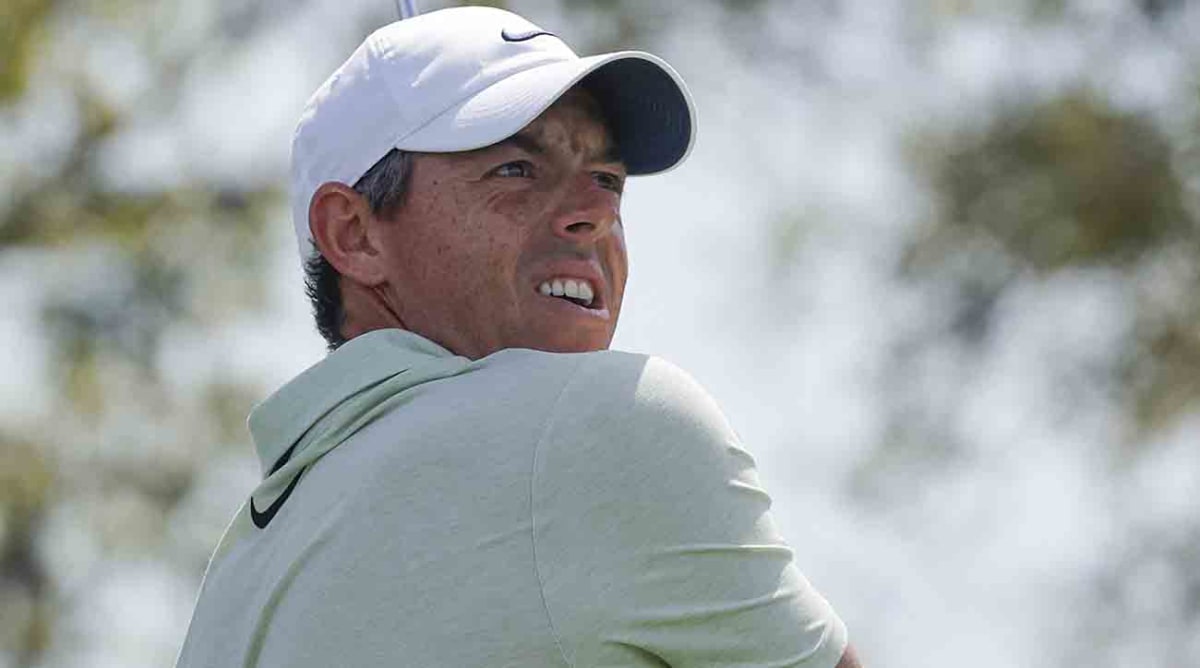More Weekly Read: Looking for answers | Small strides for Kim | Tiger’s next start?
It was a passing question late on Friday afternoon at the Arnold Palmer Invitational, the fourth of eight signature events but the second with a 36-hole cut, which is looking more and more awkward with fields that have hovered around 70 players.
Rory McIlroy was asked about his views on having a cut and he basically said he was fine with it as long as that is what the tournaments want. (Five of the eight signature events do not have a 36-hole cut.) But when asked if he’d like to see the field expanded, it was a hard no. He said the view would not be popular, but that he’s all for fewer players to make it harder to get in. And he even suggested a more “cutthroat” Tour in which there would be fewer players who are fully exempt.

Reinhold Matay/USA TODAY Sports
“I guess I haven't thought about it that hard,” McIlroy said when asked to elaborate over the weekend. “I guess my thing is, I'm all for more cu throat and more competitive and trying to give pathways to the younger generation. So, through Korn Ferry Tour, through PGA Tour U, through ... I just feel like there's a lot of categories on Tour that people are sort of still benefiting off what they did like five or 10 years ago. I feel like the most competitive professional golf tour in the world, you should have to come out and prove yourself year after year after year.”
There’s a good bit to unpack there. Would McIlroy advocate for shorter exemptions? Major winners typically get five years. A Tour win gets two years and more for multiple victories.
Wyndham Clark, the reigning U.S. Open champion, expressed a similar view when asked about McIlroy’s comments.
“I think it would be amazing if our Tour was 100 guys, and I kind of said this a few times, 100 and we have 20 guys that get relegated every time, every year, doesn't matter who you are,” Clark said. “It would be exciting. Because you come down to the end of the year, people are looking who is going to win the FedEx Cup, and then you're looking at who is not going to be here next year.
“So, yeah, I'm probably with Rory on that. I don't know what that number is, but I think it's just nice to elevate the product and make it to where the best players are playing on TV more often and against each other.”
That’s interesting coming from a player who didn’t win his first PGA Tour event until last May and didn’t crack the top 100 in the Official World Golf Ranking until this time a year ago.
The top 125 on the FedEx Cup points list are exempt for the following year, but here are numerous multi-year exemptions and status for players who fall outside of the top 125. If you had a hard line at 100—or whatever number—it would be a huge change.
And yet, the game is facing huge change. With no clue as to what a “framework agreement” between the PGA Tour, DP World Tour and Public Investment Fund would look like—or even how the game might be reshaped without the PIF due to the Strategic Sports Group’s massive investment in PGA Tour Enterprises—McIlroy continues to stump for some sort of Champions League-like world tour.
“I would say take the best events from all over the world and try to create something through that, because those events still have history and legacy and tradition and all the things that are still very important in golf,” McIlroy said. “I think there's been some experiments with creating new tournaments out of nothing, and I don't know if they have really captured the imagination of the general public.
“That’s why the Masters is the Masters, why is this tournament (Arnold Palmer) is this tournament. Why are the more historical tournaments the ones that are revered so much in our game, it's because they have history, and people remember Ben Hogan winning or Jack Nicklaus or these guys. It's all about trying to bridge the present back to the past and the people that came before us. I think that's important.”







